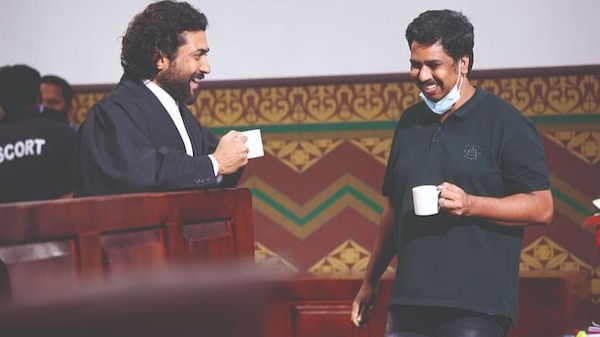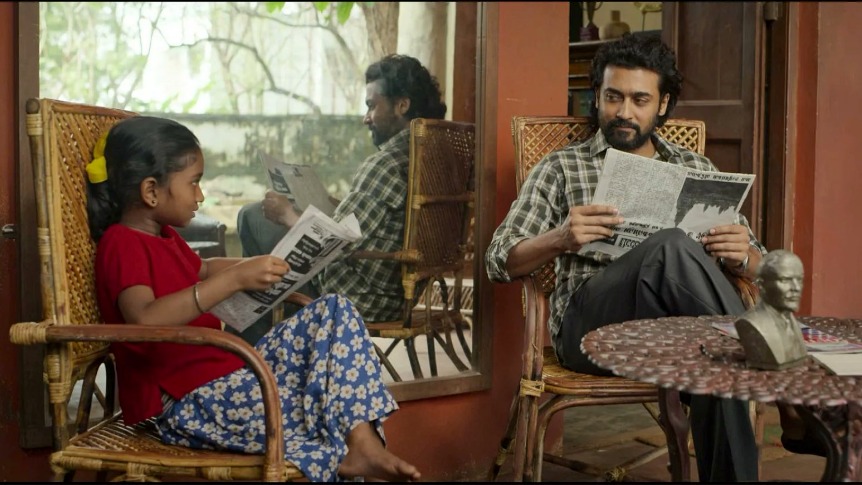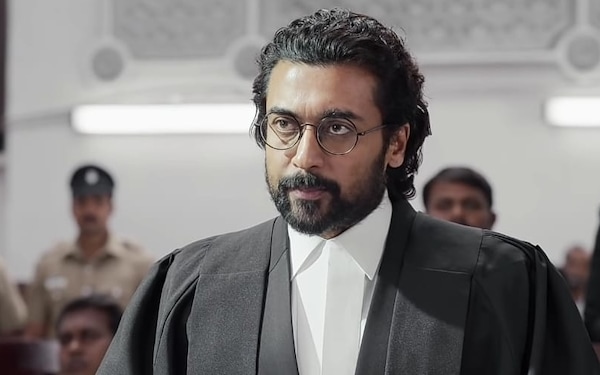Exclusive! Gnanavel: Out of 100 films made every year in Tamil, we need at least 25 of them talking about discrimination in society
The filmmaker opens up on Tamil film Jai Bhim which is now the talk of the town in other film industries, too

Suriya and Gnanavel
Last Updated: 06.16 PM, Nov 09, 2021
Director Tha Se Gnanavel's Jai Bhim, starring Suriya in the lead, started premiering on Amazon Prime Video, from November 2. The movie, which depicted the real incident of a few people from Irular community who were denied justice from the cops in 1995, is being lauded for the performances of actors, uncompromising portrayal of hard-hitting truths and technical aspects.
Suriya played lawyer Chandru in the film, a character based on former Madras High Court Justice K Chandru. In an exclusive chat wit OTTplay, Gnanavel talks about the challenges he faced while shooting for the movie, the caste discrimination that is rampant in the society and why people should start voicing for the voiceless...
Ever since its OTT premiere, Jai Bhim has been receiving positive reviews from audience and critics alike. What was there in your mind while you were directing the film?
From the beginning, I was keen on portraying the real incident in a realistic manner, in such a way that the viewers should be able to relate to the pain of a few characters. We tried our best to ensure that the audience should have a takeaway after watching the movie. Our purpose is served if the viewers feel that they should start voicing their opinion for the voiceless.
What made you choose this particular incident to make a movie?
I first thought about this story in my mind around 16 years ago when I was working as a journalist. I was really moved when I came across this incident narrated by K Chandru. When I narrated the story to Suriya sir and expressed my interest in presenting the movie in the most realistic way, he said 'okay' in five minutes. It was he who showed interest in taking up the lawyer's role. He himself coming on board as an actor elevated my confidence and strength.

How challenging was the role for Suriya? What were his preparations like?
He is someone who does his own preparations for all the roles he takes up. He started reading a lot of books to play the character of an upright lawyer. He had the guidance of Chandru sir as well. Suriya sir tweaked his body language and attitude to fit into the character's shoes.
How challenging was it to recreate the year 1995 for the movie?
It was indeed a huge challenge. We had to ensure that the audience should feel like they have been transported to 1995. Thanks to production designer Kadhir, we brought back everything from the 90s on screen. From the old telephone, to people's hairstyles to costumes and makeup, the art department did an amazing job. However, the strenuous job was to recreate the Madras High Court. A lot of detailing and brainstorming sessions went into the set designing of the court.
How instrumental was the contribution of artistes who played central characters in the movie?
If you observe carefully, the film is also about the contrast between a power structure like the High Court and the have-nots who do not have an identity of their own. We wanted each character to stand out, and hence, asked all of them not to commit other movies in between.
Tollywood actor Rao Ramesh, who played advocate general in the film, is not a regular in Tamil films. How did he come on board?
He has done only one movie in Tamil before. We wanted a power-packed performer like him for the script. Prakash Raj is a known face, and hence, there will be an element of predictability in the story had he played that role. Rao Ramesh is a fresh face for Tamil audience as well as experienced.

In the recent times, there has been a surge in the number of films which talk about caste discrimination. How do you look at the trend?
Out of 100 films in Tamil which release every year, we get hardly two or three movies which touch upon the inequality and discrimination prevailing in the society. We need at least 25 films out of the 100 which come out every year if we hope to change things for the better. Most of our movies follow run-of-the-mill, predictable stories. But we don't ask why many films are similar in their storyline or presentation. Of late there is a slight surge in the number of movies which discuss inequality, but many viewers feel this is an unusual trend.
How far do you think the situation in society has changed from 1995?
It hasn't changed much. There are people who are deprived of everything and looked down upon from thousands of years. When you look things from that perspective, you will understand that the time period between 1995 and 2021 is a small one.
Subscribe to our newsletter for top content, delivered fast.

